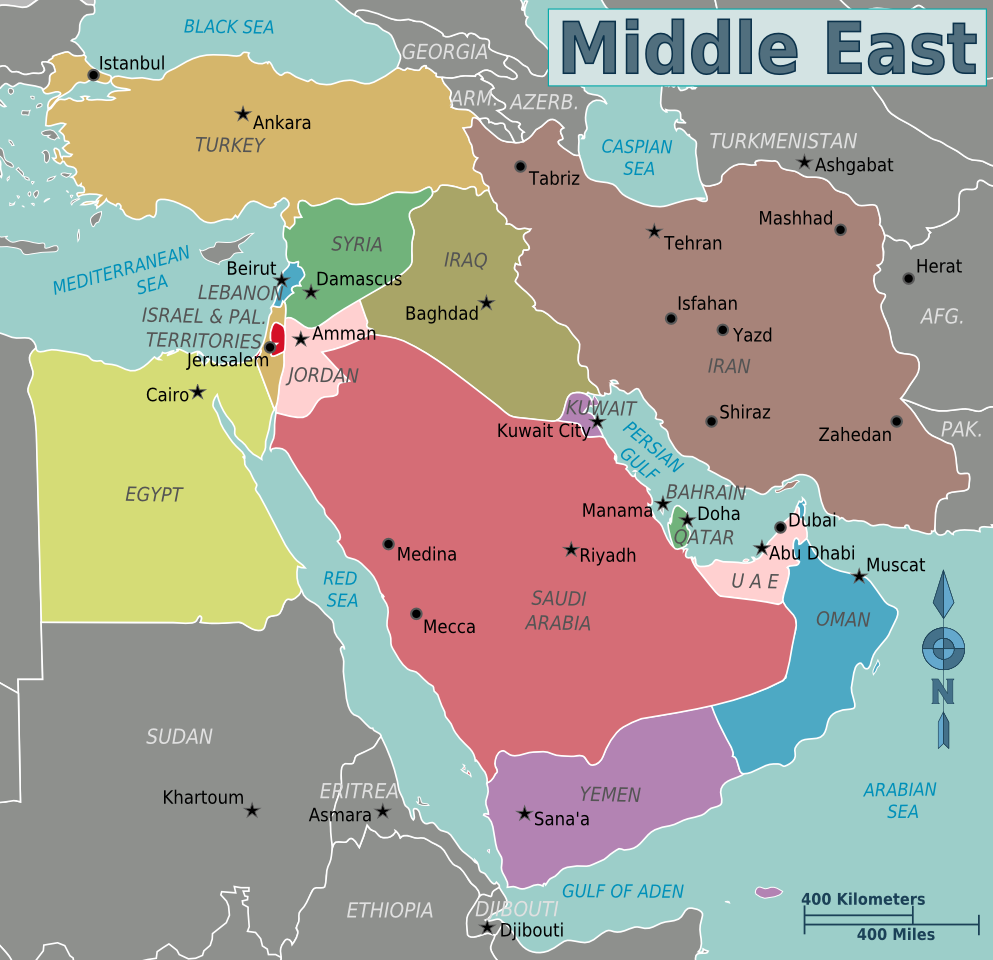
- 19 Feb 2020
[POSTPONED] Israel’s Encounter with the New Strategic Map of the Middle East
Singapore has raised its risk assessment under the Disease Outbreak Response System (DORSCON) from Yellow to Orange on 7 February.
Under DORSCON Orange, the Ministry of Health (MOH) has advised all event organisers to cancel or defer non-essential large-scale events. In view of the MOH advisory, we will be postponing all our public events for February and March until further notice.
We will update our events pages with the rescheduled dates once the coronavirus situation stabilises. Thank you.
Abstract
The Middle East is one of most insecure regions in the world. For the past several decades, the region has witnessed some geopolitical developments that has resulted in a new strategic map. These developments are:
- Internal national disintegration due to the growing influence of religion, ethnic conflicts and social unrest. All these undermine existing borders and facilitate external intervention;
- The rise of non-state actors who assume hybrid and gray area warfare that extends beyond national borders;
- Regional conflicts which involve Iran, Turkey, Saudi Arabia and the Gulf States, and Israel. Throughout these conflicts, proxy forces are used beyond and over national borders;
- Increasing global power competition in which the Middle East plays an important role due to its strategic and economic importance.
Syria is currently a major playground for the developments mentioned, but some elements have resurfaced in other countries as well. Two questions arise: 1) Where is the Middle East heading in terms of its global position, regional relations and intra-state developments? 2) What are the challenges and opportunities facing Israel in the face of the these potential changes?
I will answer these questions by first examining the major factors that drive the region and its states at the domestic, regional and global levels. These factors, which relate to diplomatic, military, economic, demographic, social, cultural, technological and environmental changes, may lead the Middle East in different directions. Relying on theoretical and empirical insights accumulated over the years, I would like to explore, through several scenarios, possible futures for the Middle East, and to interpret their implications for Israel.
About the Speakers

Professor Emeritus
Hebrew University of Jerusalem
Professor Shlomo Hasson is Professor Emeritus at the Hebrew University of Jerusalem, where he teaches and conducts research. For 40 years, Professor Hasson taught at the Department of Geography, the Institute of Urban and Regional Studies, and the School of Public Policy. He holds the Leon Safdie Chair for urban and regional planning and serves as the head of the Shasha Center for Strategic Studies at the Hebrew University of Jerusalem. In addition, he is the founder and head of the Futura Institute, a private firm engaged in strategic consultancy to government offices and municipalities.
Prof Hasson’s main fields of interest are: geopolitics at the global and regional levels, urban and regional planning, innovation, science and technology, human capital and the role of higher education, democracy and governance and strategic thinking.
He has published 30 books and monographs and over 100 articles. His recent publications since 2016 are: Israel 2048: Spatial Development and Planning (published in Hebrew in 2016 with the Israeli Ministry of Finance); “Strategic Plan 2050 — Between the Mediterranean Sea and the Jordan River” (2018, with Rami Nasrallah); “Israel Facing the Geopolitical Changes in the Middle East” (2019, with Rafael Rudnik); “The Future of the University” (2019). He is currently working on a monograph entitled “Innovation, Science and Technology: Scenarios and Strategies”.




